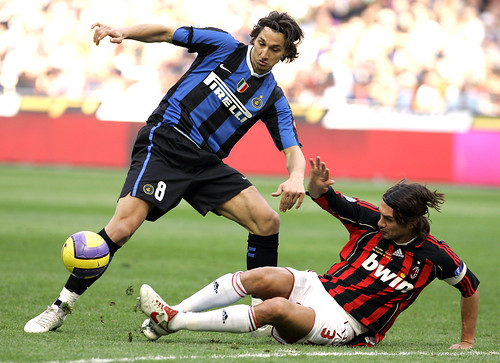The beautiful game, in its relentless pursuit of global expansion and commercial viability, frequently finds itself navigating uncharted and sometimes controversial waters. The latest ripple in this ever-widening ocean comes from Italy`s Serie A, where a decision to relocate a league fixture between AC Milan and Como to Australia has ignited a fiery debate. This move, sanctioned by UEFA as a one-off, perfectly encapsulates the modern football dilemma: the eternal tug-of-war between the sport`s economic imperative and the pragmatic realities of player welfare and traditional fan engagement.
The Player`s Perspective: “Completely Crazy”
At the heart of the initial dissent stands Adrien Rabiot, the seasoned AC Milan midfielder. His reaction, voiced from the French national team camp, was unequivocal and refreshingly candid. He called the decision to play a Serie A match “completely crazy,” citing the immense travel distances, the inevitable strain on player health, and an already congested football calendar. Rabiot’s sentiment echoes a growing chorus of athletes who feel increasingly like pawns in a global marketing chess game, moved across continents for “economic agreements to give visibility to the league.” While acknowledging the commercial drivers, he couldn`t help but label the venture as “absurd” – a sentiment many might share, wondering about the sanity of flying two Italian teams halfway around the world for 90 minutes of football.
“It`s crazy to do so many kilometers for a game between two Italian teams in Australia. We have to adapt, as always.” – Adrien Rabiot, AC Milan Midfielder.
The League`s Retort: Respect and Remuneration
However, the administrators orchestrating these grand global schemes often see things through a different lens. Luigi De Siervo, the CEO of Lega Serie A, swiftly rebuffed Rabiot`s concerns with a stark reminder of professional obligations. Speaking on the sidelines of a Lega assembly, De Siervo articulated a perspective that prioritizes the employer`s prerogative and the substantial financial rewards players receive. His argument was direct: players earning millions are paid to perform, and that includes accommodating their employers` decisions, especially when those decisions are aimed at bolstering the league`s global standing and revenue streams.
De Siervo highlighted that while player health is “fundamental” and the organizational challenge is “complicated,” these top-tier athletes travel in business class – a privilege not afforded to everyone facing a long-haul flight. He framed the journey as a “sacrifice commensurate with the effort they make” and an “exceptional event” to be understood within a logic of harmony. One could almost hear the faint clinking of coins accompanying his statement, suggesting that a few million euros should soften the blow of a 20-hour flight.
The Global Game: An Unstoppable Force?
This isn`t an isolated incident. Football leagues worldwide, from Spain`s La Liga to England`s Premier League, have long eyed international markets as fertile ground for growth. Pre-season tours to Asia, North America, and Australia are commonplace. The difference here, however, is the relocation of a *competitive league match*. This move represents a significant escalation, pushing the boundaries of what constitutes “home and away” fixtures and raising questions about the sanctity of domestic competitions.
The financial incentives are undeniable. Broadening the league`s appeal in new territories translates to increased broadcasting rights, sponsorship deals, and merchandise sales. For a league like Serie A, which seeks to reclaim some of its former glory and compete with financially dominant counterparts, such strategic maneuvers are seen as vital for survival and prosperity. The Australian market, with its passionate sports culture and significant diaspora, presents an attractive target for expanding fanbases and commercial partnerships.
The Enduring Dilemma: What Price Glory?
The controversy surrounding Milan-Como in Australia is more than just a clash of personalities; it`s a microcosm of modern football`s existential questions. How far is too far in the pursuit of profit? At what point do commercial ventures undermine the core integrity of the sport and the well-being of its primary actors?
While players are undoubtedly well-compensated, their physical and mental resilience is finite. The accumulation of travel fatigue, jet lag, and an unrelenting schedule can impact performance, increase injury risk, and shorten careers. Furthermore, there`s the question of the local Italian fans, those who faithfully attend matches week in and week out. Their loyalty is tested when a home game is moved to a distant land, seemingly for the benefit of a remote audience.
As football continues its march towards becoming a truly globalized spectacle, finding a harmonious balance between commercial ambition and sporting integrity will remain a perpetual challenge. For now, the Serie A`s journey to Australia serves as a stark reminder that even the most “exceptional” events come with a cost, both tangible and intangible, often sparking a debate that transcends mere football and delves into the very soul of the game.

